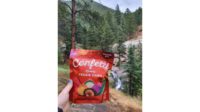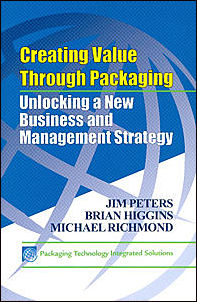Tipa Corp. Aims to Solve Recycling Issues with New Technology

The wrapper that holds many natural and organic products may be transparent but actually has a huge transparency problem. Food and beverage packaging is currently accounting for more than half of the world's non-recyclable flexible plastic, but a new technology developed by Tipa Corp. may turn the tide.
Two decades ago, bioplastics were hailed as the solution to solving the plastic waste problem, however they have failed to deliver due to challenges around limited physical properties that do not provide a comprehensive end-of-life solution for packaging. The fundamental flaw of current flexible packaging is that it's made up of several materials, and not pure polymers. It's the blended materials in flexible packaging that make recycling a long-term challenge, along with the lack of awareness among consumers of which plastics can actually be recycled.
It's this tipping point for plastics that motivated Israeli-based company, Tipa Corp., to develop and manufacture a breakthrough certified-compostable flexible film. It's the first flexible film of its kind that can be easily incorporated into a large variety of design structures ranging from basic "poly" and zipper bags to sophisticated, multi-layered structures, which require moisture barrier, printing and other essential properties.
"We have developed an easy way to do the right thing. You can treat our plastic packaging like any other organic waste and literally toss it into a compost with your food and the entire package will turn into compost and together with the whole compost, will regenerate new plant life," said Daphna Nissenbaum, CEO and co-founder of Tipa, who used her inventive thinking skills as senior software engineer to develop the company behind this new generation of flexible packaging. "Tipa is made from several materials, all of which are fully certified compostable. It puts an end to flexible plastic life so it can eventually take part in a new plant life."
The team behind Tipa's technology is an impressive brain trust of professionals including researchers, food engineers, industrial, chemical and bioplastic experts. This year, the Tipa team was honored with a coveted Silver Edison Award for the development of its compostable, flexible plastic packaging solution. It's one of the highest accolades a company can receive for innovation in business.
"Our vision for Tipa was to provide manufacturers and consumers with a plastic that they are accustomed to and that the planet could also adapt to without any extra effort from humans," said Yifat Bareket, Ph.D. and Tipa chief technology officer. "Plastic is a necessary evil for everyone, so our goal was to develop a technology to make it good again, and we've accomplished that."
Early U.S. adopters of Tipa Sustainable Packaging include brands such as B.O.S.S. Food Co., Sheffa Foods, Lamb Farm Kitchen, Question Coffee, VitalBulk, Reuseit and fashion brands Recover and Mara Hoffman.
"We're seeing a growing number of brands who want to use Tipa Sustainable Packaging simply because they want to stay true to their sustainability missions and believe that this form of packaging, despite its higher costs, is also an effective tool for differentiation with the mainstream consumer who is becoming more hyper-vigilant to our planet's environmental issues," says Elzaphan Hotam, vice president of sales, who manages Tipa's U.S. headquarters in Morristown, New Jersey.
Tipa Sustainable Packaging is available in a wide range of packaging formats that can be specifically designed to a company or manufacturer's specifications. Tipa's packaging meets food contact regulations in the United States and Europe, is certified for both industrial and home composting. For more information, visit: www.tipa-corp.com.
Looking for a reprint of this article?
From high-res PDFs to custom plaques, order your copy today!








